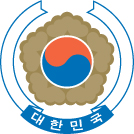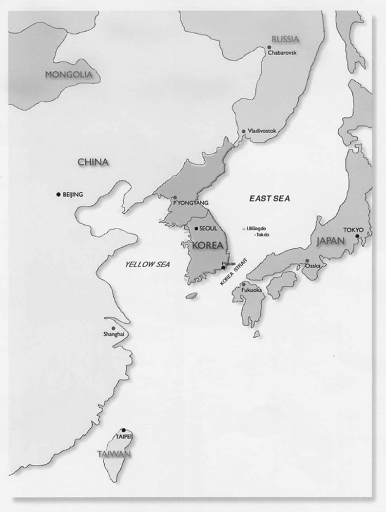between the Government and its critics. The Government declared martial law and formed an interim government under Prime Minister Choi Kyu Hah, who became the next President. After clashes between the Government and its critics, President Choi resigned, and General Chun Doo Hwan, who took control of the Korean army, became President in 1980.
In late 1980, the country approved, by national referendum, a new Constitution, providing for indirect election of the President by an electoral college and for certain democratic reforms, and shortly thereafter, in early 1981, re-elected President Chun.
Responding to public demonstrations in 1987, the legislature revised the Constitution to provide for direct election of the President. In December 1987, Roh Tae Woo won the Presidency by a narrow plurality, after opposition parties led by Kim Young Sam and Kim Dae Jung failed to unite behind a single candidate. In February 1990, two opposition political parties, including the one led by Kim Young Sam, merged into President Roh’s ruling Democratic Liberal Party.
In December 1992, the country elected Kim Young Sam as President. The election of a civilian and former opposition party leader considerably lessened the controversy concerning the legitimacy of the political regime. President Kim’s administration reformed the political sector and deregulated and internationalized the Korean economy.
In December 1997, the country elected Kim Dae Jung as President. President Kim’s party, the Millennium Democratic Party (formerly known as the National Congress for New Politics), formed a coalition with the United Liberal Democrats led by Kim Jong Pil, with Kim Jong Pil becoming the first prime minister in President Kim’s administration. The coalition, which temporarily ended before the election held in April 2000, continued with the appointment of Lee Han Dong of the United Liberal Democrats as the Prime Minister in June 2000. The coalition again ended in September 2001.
In December 2002, the country elected Roh Moo Hyun as President. President Roh and his supporters left the Millennium Democratic Party in 2003 and formed a new party, the Uri Party, in November 2003. On August 15, 2007, 85 members of the National Assembly, previously belonging to the Uri Party, or the Democratic Party, formed the United New Democratic Party (the “UNDP”). The Uri Party merged into the UNDP on August 20, 2007. In February 2008, the UNDP merged back into the Democratic Party. In December 2011, the Democratic Party merged with the Citizens Unity Party to form the Democratic United Party, which changed its name to the Democratic Party in May 2013.
In December 2007, the country elected Lee Myung-Bak as President. He commenced his term on February 25, 2008. On April 9, 2018, the Korean prosecutor’s office indicted former President Lee on 16 counts of corruption, including bribery, abuse of power, embezzlement and other irregularities.
In December 2012, the country elected Park Geun-hye as President. She commenced her term on February 25, 2013. On December 9, 2016, the National Assembly voted in favor of impeaching President Park for a number of alleged constitutional and criminal violations, including violation of the Constitution and abuse of power by allowing her confidant to exert influence on state affairs and allowing senior presidential aides to aid in her extortion from companies. President Park was suspended from power immediately, with the prime minister simultaneously taking over the role of acting President. On March 10, 2017, the Constitutional Court unanimously upheld the parliamentary vote to impeach President Park, triggering her immediate dismissal. On April 17, 2017, the Korean prosecutor’s office indicted former President Park on charges of bribery, abuse of power and coercion, among others. On August 24, 2018, the Seoul High Court found former President Park guilty on many of the charges, including bribery, abuse of power and coercion, and sentenced her to 25 years in prison and assessed a fine of Won 20 billion.
4

